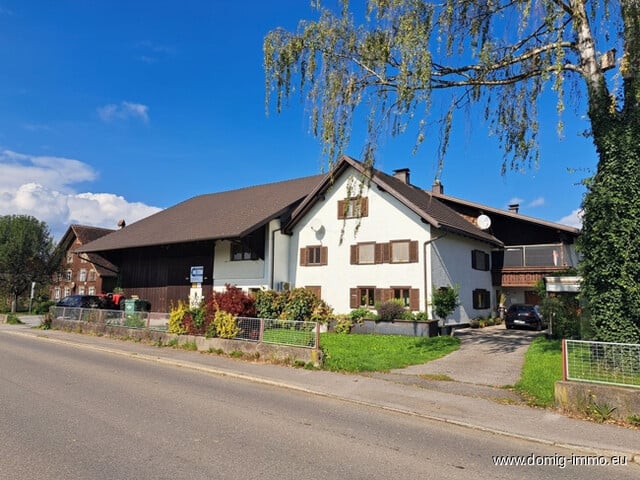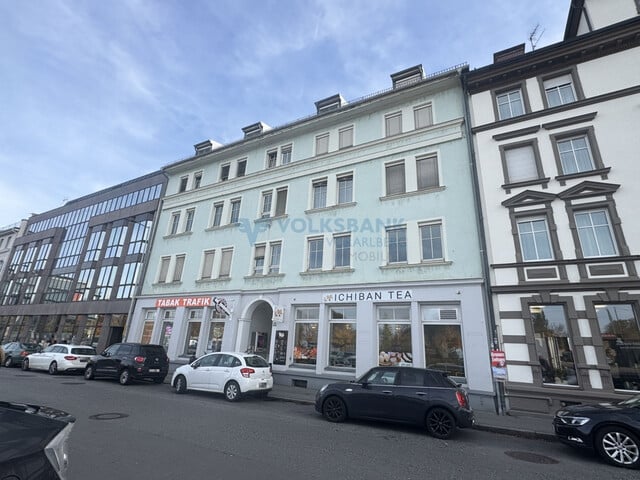Ukraine Peace Through "Deal" Makes Austria a Big Loser
A dictated peace pushed by the USA between Ukraine and Russia would "indirectly affect" Austria, according to economic experts. Such a "peace agreement" would mean significantly fewer investments in Eastern Europe - a region where 20 percent of domestic foreign trade is conducted. "This would burden Austria's economy, as it is one of the main investors in Eastern Europe," said experts from the Vienna Institute for International Economic Studies (wiiw).
Ukraine Dictated Peace Would "Indirectly Affect" Austria
"I cannot imagine that companies would still invest in Estonia, Poland, or Romania with a clear conscience," said the deputy wiiw director Richard Grieveson in an interview with the Austria Press Agency, referring to the security guarantees for the NATO partners in the region that were called into question by Donald Trump. Austria and Europe would - like Ukraine - be among the big losers of such a "deal." A dictated peace would also mean the end of the peace dividend: saving budget funds by cutting military spending. Europe would be forced to rearm much more than before. The only winners in the Union would be the large arms companies.
Ukraine Could Become "Second Belarus"
Paradoxically, the end of the war could harm Eastern Europe more than the war itself. Because the effects on investments were "surprisingly not that great" in the first years of the war, 2022 and 2023. "That will change now," said Grieveson. The forecast in the region is downward, a trend that is likely to have an impact as far as Central Europe and thus Austria. Because "the connection with Eastern Europe has always been a stability factor for Austria's economy."
Ukraine expert Olga Pindyuk even sees the danger of a complete investment stop in Eastern Europe and especially Ukraine. "We are talking about a high-risk zone here, where there are mineral resources, but everything is mined," she told the APA. If Ukraine is forced to accept a de facto capitulation on Kremlin chief Vladimir Putin's terms, it will become a vassal state of Russia. The occupied part could become a "second Belarus," said Pindyuk. The resources in the regions conquered by Russia in the east would be exploited similarly to a "colonial economy." Hardly any of the proceeds from extracting rare earths, oil, or gas would be invested in the reconstruction of the region devastated by three years of war.
End of War Brings Economic Complications for Russia
Russia is "in the medium term" among the few winners of a possible dictated peace, emphasized Russia expert Vasily Astrov. Especially if such a peace, as expected by the Russian state fund, is accompanied by the deepening of economic relations with the USA and the return of US companies to Russia. However, the transition to a war economy since 2022 will lead to complications in the short term, said the expert. After the end of the war, Russia faces "a veritable demand shock due to lower government spending on armaments and military." Russia has so far been dependent on the war like a drug, Astrov stated.
Last year, Russia spent 6.5 percent of its GDP on defense. About a quarter of that was solely for payments to contract soldiers and mercenaries. The absence of these payments will result in a loss of purchasing power for many families, Astrov predicted to the APA. A military victory for Russia should not distract from the fact that the conquest of territories in eastern Ukraine was a "loss-making business" for the Kremlin. Russia will have to "subsidize the destroyed areas in the Donetsk, Luhansk, Kherson, and Zaporizhzhia oblasts for years." This was already the case with the annexation of Crimea in 2014, Astrov recalled.
Trump Does Not See Russia "as a Rival"
Classifying the USA in a winner-loser matrix of a dictated peace pushed by President Donald Trump is significantly more difficult, according to all three wiiw experts. The effects on the very closed US economy are minimal. "Trump is not interested in Eastern Europe, what is important to him are low energy prices," said Grieveson. He believes he can achieve this through the return of Russian gas to the market. During the election campaign, the Republican primarily appealed to the working class with the promise to lower food and consumer prices in the USA again.
For Trump, engaging with Russia is a completely logical and consistent step in his foreign policy. "Trump's absolute priority in international economic policy is the fight against China, Russia is simply not as important to him," said the economic experts. His goal is to break the Beijing-Moscow tandem to weaken China. Therefore, freeing Russia from its international isolation is imperative. After the start of the war, the Kremlin increasingly turned to China's President Xi Jinping. Since then, both countries have been cooperating more closely, especially economically and in defense matters.
(The conversation was conducted by Raphael Gruber/APA)
This article has been automatically translated, read the original article here.
Du hast einen Hinweis für uns? Oder einen Insider-Tipp, was bei dir in der Gegend gerade passiert? Dann melde dich bei uns, damit wir darüber berichten können.
Wir gehen allen Hinweisen nach, die wir erhalten. Und damit wir schon einen Vorgeschmack und einen guten Überblick bekommen, freuen wir uns über Fotos, Videos oder Texte. Einfach das Formular unten ausfüllen und schon landet dein Tipp bei uns in der Redaktion.
Alternativ kannst du uns direkt über WhatsApp kontaktieren: Zum WhatsApp Chat
Herzlichen Dank für deine Zusendung.








